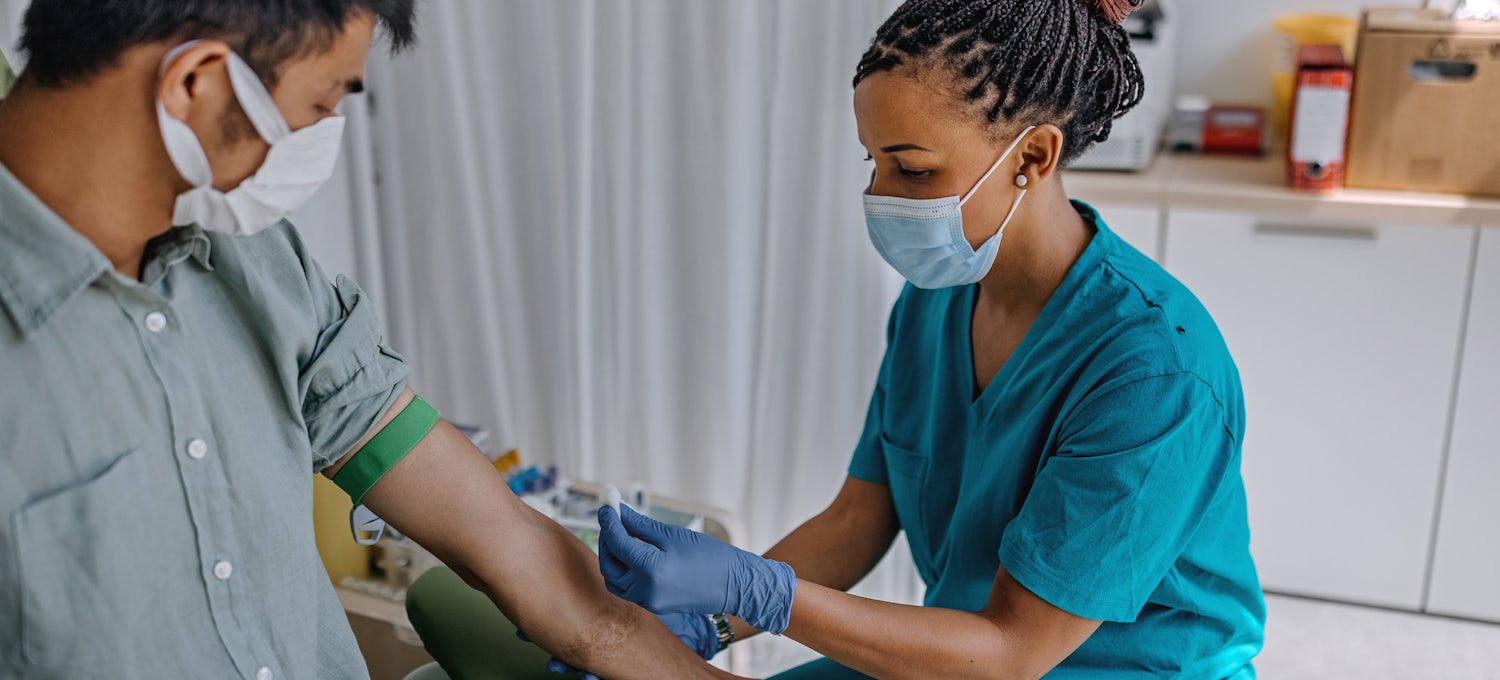Premier Northeast Medical Institute Phlebotomy Training Stamford: Hands-On Learning Experience
Essential Elements to Think About When Choosing the Many Appropriate Medical College Curriculum for You
Choosing the most suitable clinical college curriculum is a critical decision that can substantially affect your academic trip and future occupation path. As aiming doctor, the selection of educational program should straighten with your personal learning style and occupation aspirations. Nonetheless, beyond these initial factors to consider, different essential variables enter into play when making this selection. By discovering the nuances of training techniques, educational program adaptability, and scientific direct exposure opportunities, a more comprehensive understanding of what makes a curriculum ideal for you arises. Allow's discover these important aspects that can form your clinical education and eventually, your professional trajectory.
Personal Understanding Style

Medical schools that provide diverse teaching techniques and resources can accommodate different discovering styles, cultivating a inclusive and dynamic educational atmosphere. Eventually, recognizing personal understanding preferences empowers pupils to make informed choices regarding their clinical education and learning, setting a strong structure for their future occupations in healthcare.
Profession Objectives Positioning

Furthermore, lining up job objectives with the clinical school curriculum can likewise improve inspiration and involvement throughout the academic trip. When students see the straight relevance of their coursework to their future profession, they are most likely to remain devoted and focused to their researches. Therefore, when picking a medical college curriculum, it is vital to very carefully think about how well it lines up with one's profession purposes to guarantee an effective and satisfying specialist path.
Training Methodologies
Taking into consideration the alignment of job goals with the chosen clinical college curriculum, an exam of the teaching methods employed ends up being vital fit the learning experience. The performance of a clinical college educational program heavily counts on the teaching techniques made use of by the organization. Various teaching methods, such as talks, small seminar, problem-based discovering, simulation-based training, and hands-on scientific experience, can dramatically affect exactly how well pupils comprehend and retain information.
Simulation-based training enables pupils to exercise professional abilities in a regulated environment before engaging with real patients. Hands-on medical experience uses a direct understanding of person care and medical techniques.
When selecting a medical college curriculum, aiming trainees should take into consideration the teaching methods utilized to ensure that their discovering preferences and toughness align with the instructional approach of the institution.
Curriculum Flexibility
When examining medical school programs, analyzing the level of curriculum flexibility is important for possible pupils looking for a customized instructional experience. Educational program adaptability refers to the level to which pupils can customize their learning paths within the medical institution curriculum. An educational program that uses flexibility enables pupils to seek their interests, visit the website focus on locations where they need extra assistance, and participate in learning experiences that line up with their job objectives.

Possible clinical trainees must think about exactly how a medical school's curriculum adaptability aligns with their discovering preferences, occupation goals, and individual goals. By choosing a program that provides the appropriate equilibrium of structure and versatility, students can enhance their academic experience and prepare themselves for successful occupations in medication.
Scientific Exposure Opportunities
Checking out the useful application of medical knowledge, professional exposure possibilities play an essential duty fit an extensive clinical education. These chances give students with indispensable hands-on experience in genuine healthcare settings, allowing them to link the void between concept and practice. When taking into consideration clinical school curricula, the top quality and amount of clinical exposure should be thoroughly evaluated.
Efficient clinical exposure must offer a diverse array of experiences across various specialties, guaranteeing that pupils are subjected to various clinical scenarios and person demographics. Exposure to outpatient clinics, inpatient wards, surgical movie theaters, and emergency departments can assist trainees establish an all-around understanding of various aspects of health care delivery. Additionally, chances for community-based uc davis online mba treatment and communications with underserved populations can promote a deeper admiration for the social components of health and wellness.
Moreover, the visibility of supportive faculty and advisors throughout these medical experiences can considerably boost the learning procedure. Professors advice and constructive responses can help pupils review their professional encounters, recognize locations for improvement, and enhance their university course decision-making abilities and professional abilities (Northeast Medical Institute CNA Classes Near me Stamford). In general, robust scientific direct exposure opportunities are important for preparing future physicians to deliver quality client treatment effectively
Conclusion
To conclude, when selecting a medical college educational program, it is vital to consider your personal learning design, positioning with job goals, teaching methods, educational program versatility, and scientific exposure possibilities. These aspects play a vital role in determining the most appropriate program for your specialist and instructional advancement. Make certain to extensively review each element to make an educated choice that will best sustain your growth in the medical field.
Recognizing one's personal understanding design is critical when picking a medical college curriculum. By identifying one's discovering design early on, striving clinical students can tactically pick a curriculum that provides to their staminas, ultimately enhancing their learning experience and academic success.
When reviewing clinical institution programs, examining the level of curriculum adaptability is necessary for prospective trainees looking for a tailored instructional experience. Educational program flexibility refers to the level to which students can customize their discovering paths within the medical institution curriculum.In verdict, when picking a clinical school curriculum, it is crucial to consider your individual understanding design, positioning with job objectives, showing methods, curriculum versatility, and clinical exposure opportunities.